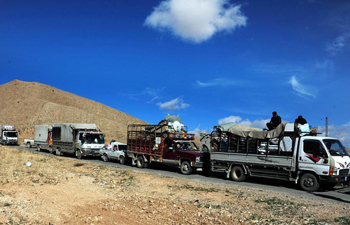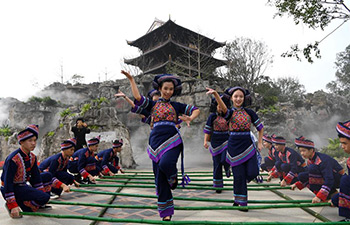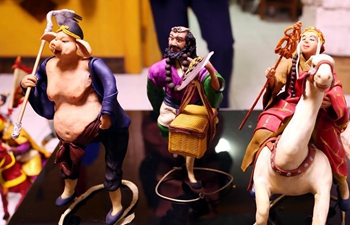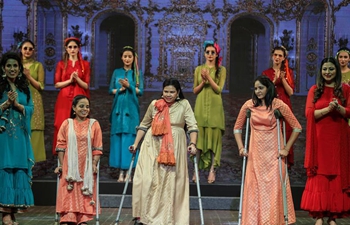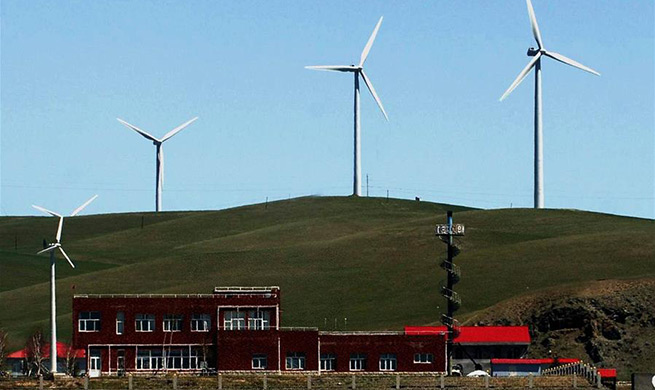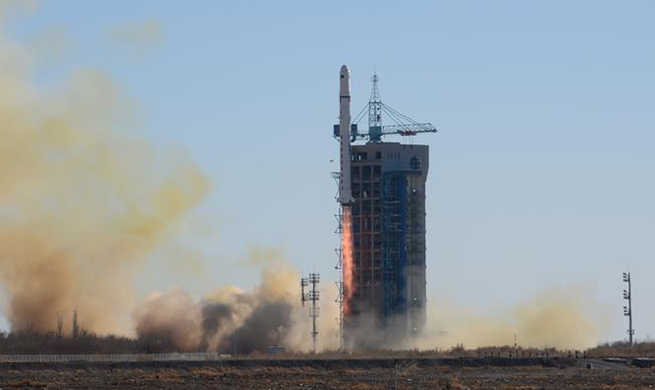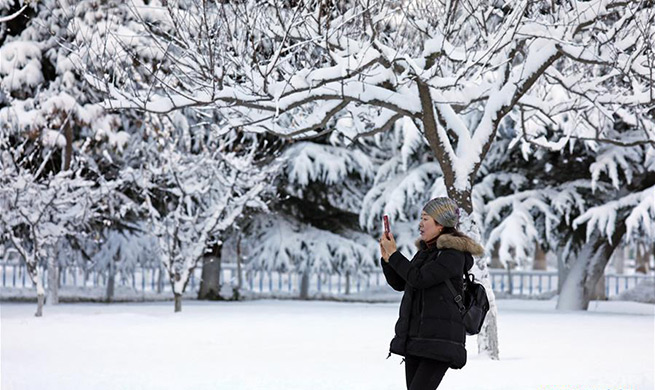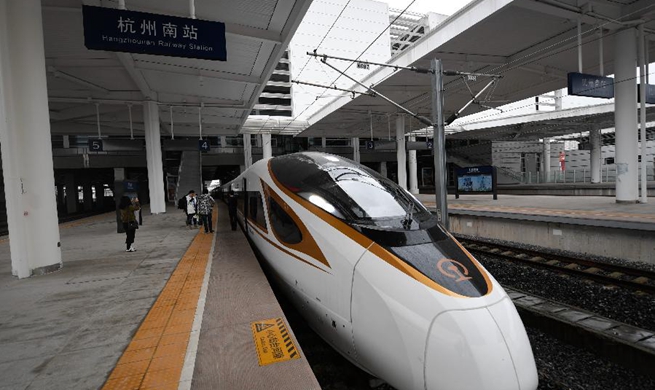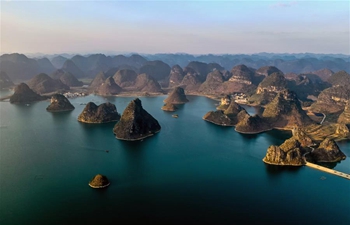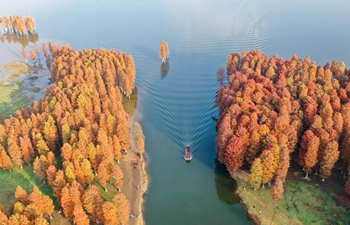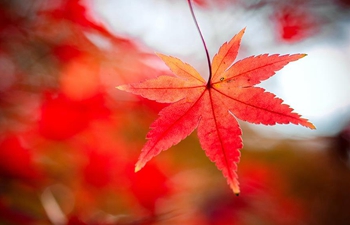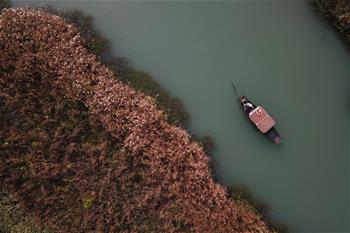BEIJING, Dec. 7 (Xinhua) -- In 1979, Italian photographer Adriano Madaro took a photo of Shanghai's Pudong area, which was then a wasteland.
At an exhibition that opened Friday in Beijing, the photo was displayed in juxtaposition with one taken in the same area this year by Chinese photographer Zhu Yaozhong, which depicts the business district full of skyscrapers.
The special arrangement of the exhibition, held by China Photographers Association and the municipal government of Zhengzhou, is designed to show the tremendous change that has happened in China over the past four decades.
"I am very proud to be a witness to China's reform and opening-up," said Madaro, who said he has made 208 trips to China since 1976.
From 1976 to the late 1980s, the Italian photographer traveled extensively across China and took more than 35,000 precious photos of a land in the early days of reform and opening-up.
Pointing at a photo he took in a train station in the city of Luoyang, Madaro said, "It's as if shouts 'Hurry Up!' and the sounds of peddling still ring in my ears."
Madaro developed an interest in China during his childhood. After reading a book titled "Children's Dreams" when he was four years old, Madaro dreamed about traveling to China. At six, he had already begun to learn to write Chinese characters.
As a photojournalist, Madaro has been committed to portraying China truthfully through his lens. During the SARS epidemic in 2003, he traveled to Beijing to cover the incident despite huge risks of being infected. His reporting presented a true picture of the epidemic as well as China's efforts to combat it.
Besides being a photographer, Madaro is also a renowned Sinologist who has published more than 10 books about China, including "China, 700 Years after Marco Polo," "In the Great Unknown Country Beyond the Wall" and "Paper Flower - Poems from China," many of which have been translated into Chinese.
Over the past 40 years, Madaro also curated a number of exhibitions about China in Italy, including ones depicting the ancient Silk Road and Tibetan culture, in an effort to bridge the cultural gap between China and the West.
"China has endured many hardships," Madaro said. "In the course of the epic journey of China's reform and opening-up, Chinese people's spiritual outlook and livelihoods have undergone a tremendous transformation."
"I am dedicated to documenting China's development," he said. "Half of my heart stays in China forever."




